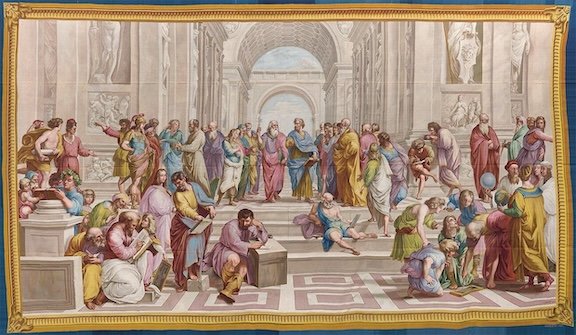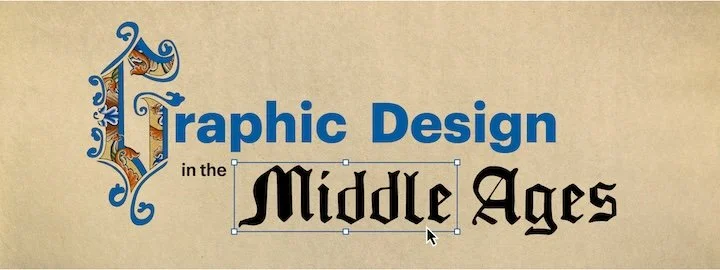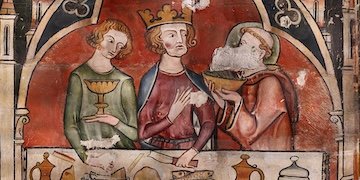To Register: https://libcal.library.upenn.edu/calendar/kislak/image-of-the-book
A great deal of recent research has focused on the objecthood of the pre-modern book and its associated materiality. But only sporadic attempts have been made to understand the role of visual representations of the book in conveying ideas about knowledge. How can our understanding be transformed when the dictum that “a picture is worth a thousand words” is put into practice, when the how of depiction is accorded as much importance as the what of textual content? This symposium will examine the means by which the book, and in particular the manuscript, is described across a wide variety of media, from painting and sculpture to digital media and film. Topics to be addressed include the book as a symbol of authority, wisdom, or piety; the visual archeology of otherwise vanished bookbinding styles, reading practices, and study spaces; and the re-imagining of the physicality of the codex through digital means. The event will also mark the public launch at Penn Libraries of the Books as Symbols in Renaissance Art (BASIRA) project, an innovative, public-access web database of thousands of depictions of books in artwork produced between about 1300 and 1600 CE. The database, like the symposium itself, aims to engage historians of religion, literacy, art, music, language, and private life, as well as book artists, conservators, and interested members of the public. The symposium is organized in partnership with the Rare Book Department of the Free Library of Philadelphia (view on map).
The program will begin Thursday evening, November 16, 5:00 pm, at the Free Library of Philadelphia in the Rare Book Department, with a reception and keynote address by Jeffrey Hamburger, Kuno Francke Professor of German Art & Culture, Harvard University. The symposium will continue November 17-18 at the Kislak Center for Special Collections, Rare Books and Manuscripts (view on map).
The symposium will be held in person with an option to join virtually. All are welcome to attend. Use the link above to register.
Program and Speakers
Thursday, November 16, 2023 - Rare Book Department, Free Library of Philadelphia, Parkway Central Library, third floor, 5:00 - 7:00 pm
Keynote Address
Avatars of Authorship
Jeffrey Hamburger, Harvard University
With opening remarks by Janine Pollock, Free Library of Philadelphia; Sean Quimby, Kislak Center for Special Collections, Rare Books and Manuscripts, Penn Libraries; and Nicholas Herman, Schoenberg Institute for Manuscript Studies, Penn Libraries
All registrants are invited to a reception before the lecture. The lecture will begin at 6:00 pm.
Friday, November 17, 2023 - Kislak Center for Special Collections, Rare Books and Manuscripts, Class of 1978 Orrery Pavilion, Van Pelt-Dietrich Library Center, sixth floor
9:30 – 10:00 am: Coffee
10:00 am: Welcome and Introduction
Nicholas Herman, Schoenberg Institute for Manuscript Studies, Penn Libraries
10:15 - 11:30 am: Meaning
Book History’s Genesis in Exodus: Revisiting the Round Topped Tablets, Sonja Drimmer, University of Massachusetts Amherst
Under Construction: Making and Metaphor in Medieval Images of Book Production, Beatrice Kitzinger, Princeton University
11:30 - 11:45 am: Coffee
11:45 am - 1:00 pm: Making
Representations of Wax Tablets: Codices in Greco-Roman Art and their Importance for Understanding their Making and Use, Georgios Boudalis, Museum of Byzantine Culture, Thessaloniki
Visual Metaphors: Exploring Bookbinding Structures through Visual Representations, Alberto Campagnolo, University of Udine
1:00 - 2:30 pm: Afternoon Break
A selection of manuscripts real and replica items will be on view during the break.
2:30 – 4:00 pm: Format
Artisanal Books: Ceramic and Lacquer Imitations from the Qing Court, Devin Fitzgerald, Yale University
A Sampling of Blooks: A Foray into the Fascinating World of Book-form Objects, Mindell Dubansky, The Metropolitan Museum of Art
This session will conclude with a showcase of book-form objects.
4:00 – 4:15 pm: Coffee
4:15 – 5:00 pm: Official Launch of BASIRA, The Books as Symbols in Renaissance Art Database
Barbara Williams Ellertson, Independent Scholar and SIMS
Nicholas Herman, SIMS
5:30 – 6:30 pm: Schoenberg Institute for Manuscript Studies 10th Anniversary Celebration Event
Join us to raise a glass or two of champagne and help us blow out the candles on a cake to celebrate ten years of manuscript studies in the digital age at Penn Libraries!
Sunday, November 18, 2023 - Kislak Center for Special Collections, Rare Books and Manuscripts, Class of 1978 Orrery Pavilion, Van Pelt-Dietrich Library Center, sixth floor
9:30 am: Coffee
10:00 – 11:15 am: Identities
The Image of the Book at the Ottoman Court, Emine Fetvacı, Boston College
Imagining Religious Identity and Difference through Book Formats: Scrolls and Codices in Judaism and Christianity, Thomas Rainer, University of Zurich
11:15 – 11:30 am: Coffee
11:30 am – 12:45 pm: Avatars
Scrolling through Scrolls and Books in Books of Hours, Dominique Stutzmann, Institut de Recherche et d’Histoire des Textes
Virtual Manuscripts in Virtual Spaces, Sabina Zonno, University of Southern California
12:45 – 2:15 pm: Afternoon Break
Demonstration: Experience Manuscripts in VR!
2:15 – 3:30 pm: Icons
The Medieval Book as Gateway: Contemplation, Meditation, and Image Making in the Lives of the Desert Fathers, Denva Gallant, Rice University
Iconic Books in Renaissance Art, James Watts, Syracuse University
3:30 – 3:45 pm: Coffee
3:45 – 5:00: Transformations
Manuscript Images of the Destruction and Salvage of Books, Lucy Freeman Sandler, New York University
Pop Bibliography: Finding Book History in Popular Media, Allie Alvis, Winterthur Library
5:00 – 6:00 pm: Closing Reception
For More Information and Abstracts of the Presentations: https://www.library.upenn.edu/events/lawrence-j-schoenberg/image-book-representing-codex




















